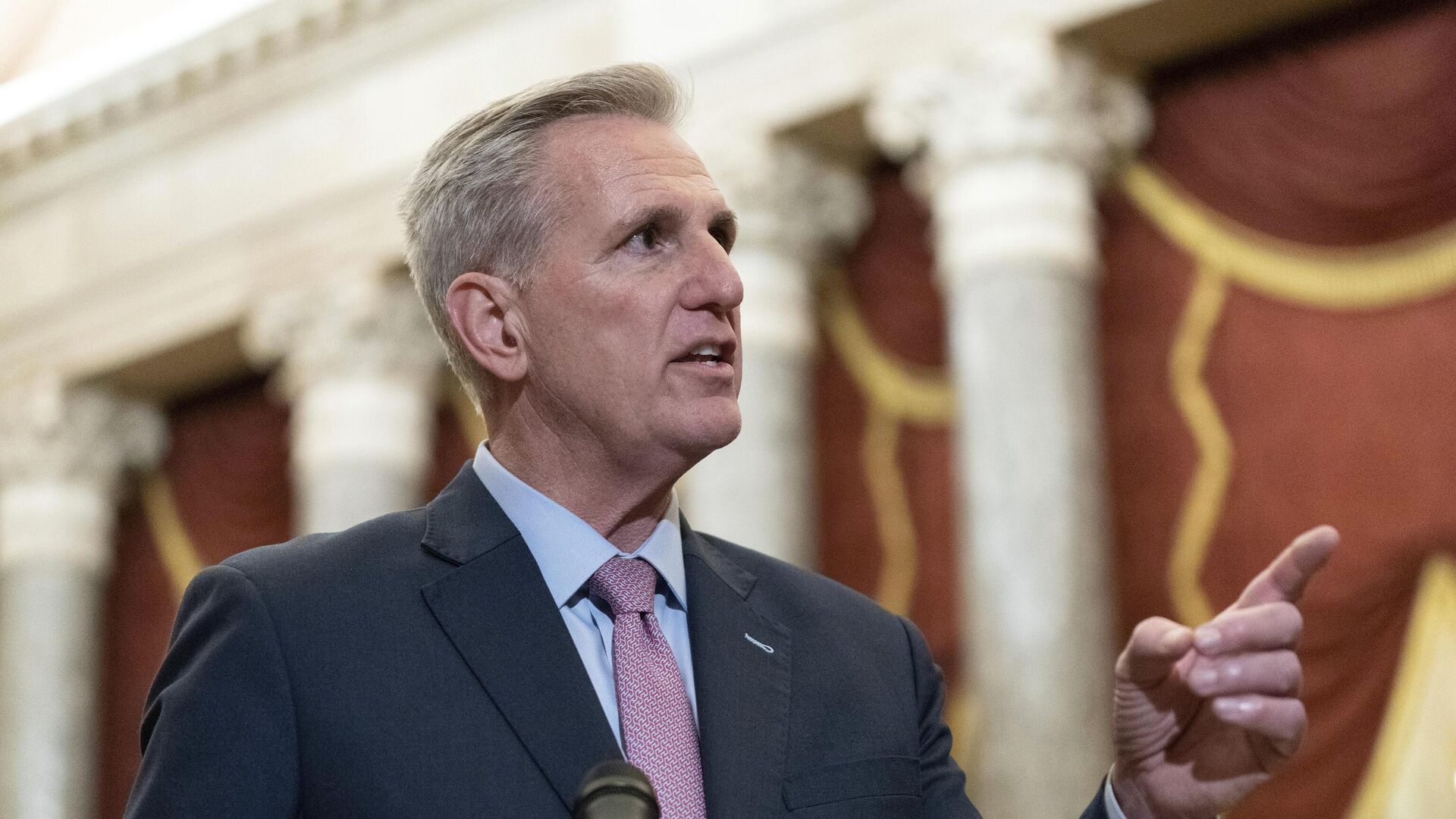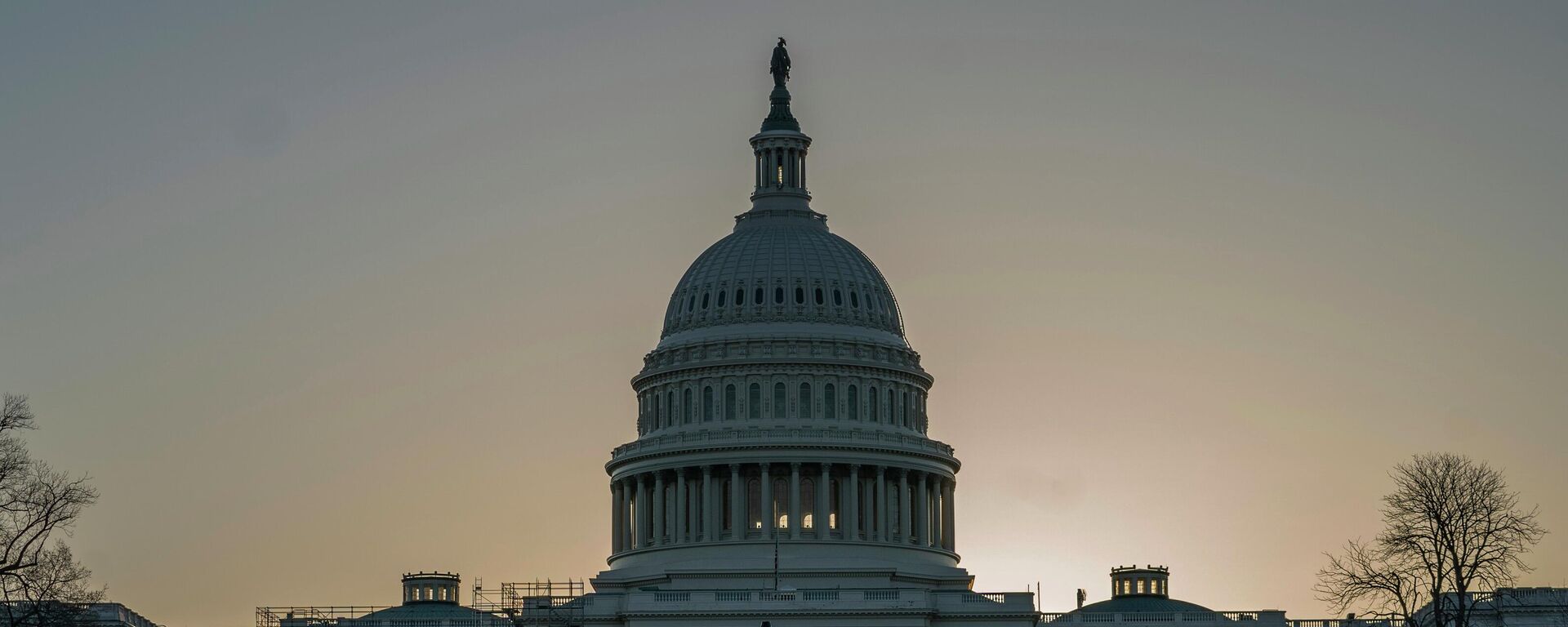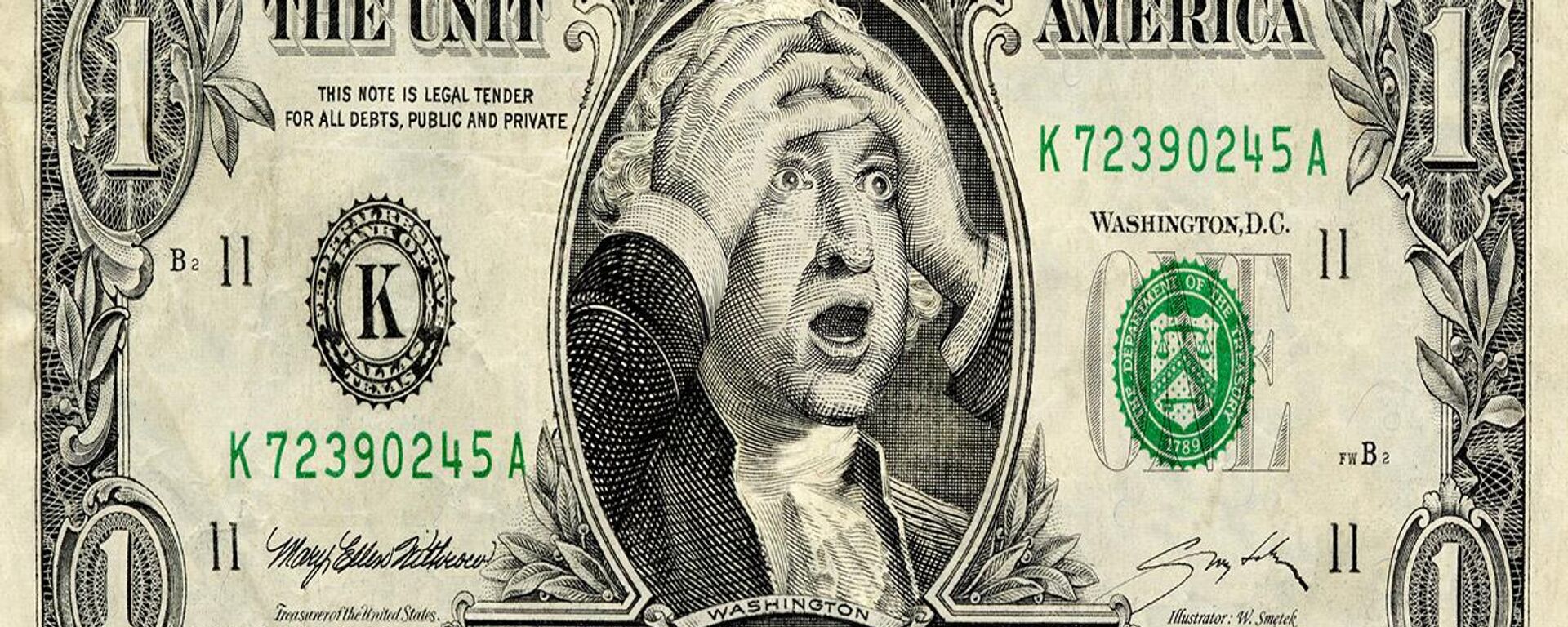'Reckless Spending': Republicans Sound Alarm After CBO Report Warns of Debt Ceiling Catastrophe

© AP Photo / Jose Luis Magana
Subscribe
On Wednesday, the Congressional Budget Office issued its financial forecast that warned the US government would be unable to meet its financial obligations if Congress fails to not raise the debt ceiling by this summer.
Republicans and Democrats have been battling and debating if the debt ceiling should be raised without a corresponding cut in spending. Republicans want cuts to social services before the ceiling is raised, while President Joe Biden says he will not negotiate on whether the United States will pay its obligations.
Secretary of the Treasury Janet Yellen has warned that if the government defaults on its debt, it could lead to a recession.
While both parties are responsible for the debt, and the debt ceiling has been raised under Republican presidents far more often than under Democratic ones, Republican politicians wasted no time in placing the blame directly on Biden and the Democrats.
“Even without the debt ceiling being raised, every month the federal tax revenues that the federal government receives significantly exceeds the cost of paying interest on the debt,” Sen. Ted Cruz (R-TX) said in an interview with CBS News. “And Joe Biden could prioritize and say ‘we will not default.’ That would be the responsible thing to do. The person threatening default is Joe Biden.”
While it is true that tax revenues do exceed the cost of interest on the debt, all of those dollars have been allocated by Congress already. Paying the debt interest with only tax revenue would take significant cuts to spending, which is mostly earmarked for military spending and so-called “mandatory spending” for programs like Social Security that have been funded by taxpayers with the understanding the government has an obligation to pay them back.
Representative and chairman of the House Budget Committee Jody Arrington (R-TX) released a statement saying that the “damage of Democrat spending on the national debt is worse than we thought.”
“The new Congressional Budget Office report is a clear indication that Biden’s socialist policies and single-party Democrat rule has caused an unprecedented explosion in federal spending over the last two years – 21% higher than projected when Biden took office,” Arrington’s statement reads. “Biden’s numerous bailouts and massive government expansion disguised as COVID relief has blown out spending and exacerbated our debt disaster. As a result, the federal debt will grow by over $22 trillion over the next 10 years.
“House Republicans must rein-in the unbridled spending and restore fiscal sanity in Washington before it’s too late,” he added.
While Biden has been quick to point out that the deficit (the gap between annual government spending and tax revenues) has decreased during his tenure, it is significantly higher than the CBO predicted it would be if Biden had stuck with Trump-era spending.

15 February 2023, 19:07 GMT
Most of the reduction in the deficit was due to expiring COVID-19 relief spending and a growing economy for much of 2022. With the economy cooling, that is not expected to continue, and the deficit is expected to grow to 5.4% of the nation's gross domestic product, as Arrington contends.
House Speaker Kevin McCarthy (R-CA) took to Twitter to express his frustrations with government spending.
“Democrats' reckless spending is plunging our country into deeper debt & jeopardizing our economy. A blank check for more spending will destroy our country,” McCarthy’s tweet read. “That's why we must negotiate a responsible debt limit increase that gets our fiscal house back in order.”
McCarthy would issue a dire warning in a later tweet.
“Unless we change course, we will spend $10.45 trillion just on interest over the next 10 years. That is more than we will spend on defense, 3.5 times what we will spend on veterans programs, 1.5 times what we spend on Medicaid, and over 2/3 of what we will spend on Medicare.”
It is debatable if we will spend less than $10.45 trillion on the military over the next ten years, not only because the military budget has been consistently increased over the past two decades, but because multiple things associated with the military aren’t included in the base Defense Department budget.
The Overseas Contingency Operation account, ostensibly designed to fund the “war on terror” but now used for a variety of Pentagon pet projects, is not included in the military budget. Neither is the Department of Energy, which makes sense until you realize the National Nuclear Security Administration, which secures US nuclear weapons and researches new ones, falls under the Department Of Energy’s budget and not the military budget.
Veteran Affairs, responsible for providing current and former soldiers with health care and support after service, is also a separate expenditure. As is the Department of Homeland Security, which includes the Coast Guard, Customs and Border Protection, the Office of Intelligence and Analysis, and the Domestic Nuclear Detection Office, among other programs. Likewise, with the CIA, National Security Agency, the Defense Intelligence Agency, and other foreign-focused agencies.
In 2019, The Nation calculated all the extra spending related to war but not a part of the official military budget and determined that the true cost of military spending was over $1.25 trillion annually. At that time, the official military budget was only $554.1 billion. For the fiscal 2023, that same budget is $816.7 billion, not counting the aforementioned war-related programs.
While the rest of McCarthy’s statement could be called hyperbolic, the spirit of his warning rings largely true.
Meanwhile, the Chairman of the House Financial Services Committee, Patrick McHenry (R-NC) called for compromise in a statement.
“Republicans have been and will continue to be reasonable in calling for discussions about how to lift the debt ceiling responsibly,” said McHenry. “No one is saying we won’t raise the debt ceiling. But Congress must use this as an opportunity to take stock of the federal government’s spending, which has been unsustainably high for far too long. As policymakers, we have a responsibility to get our fiscal house in order. Democrats must be willing to come to the table to sensibly rein in excessive spending and bring fiscal sanity back to Washington.”
If the debt ceiling is not raised, the CBO predicts that the US government will have to delay payments, default on debt or both between June and September of this year.


